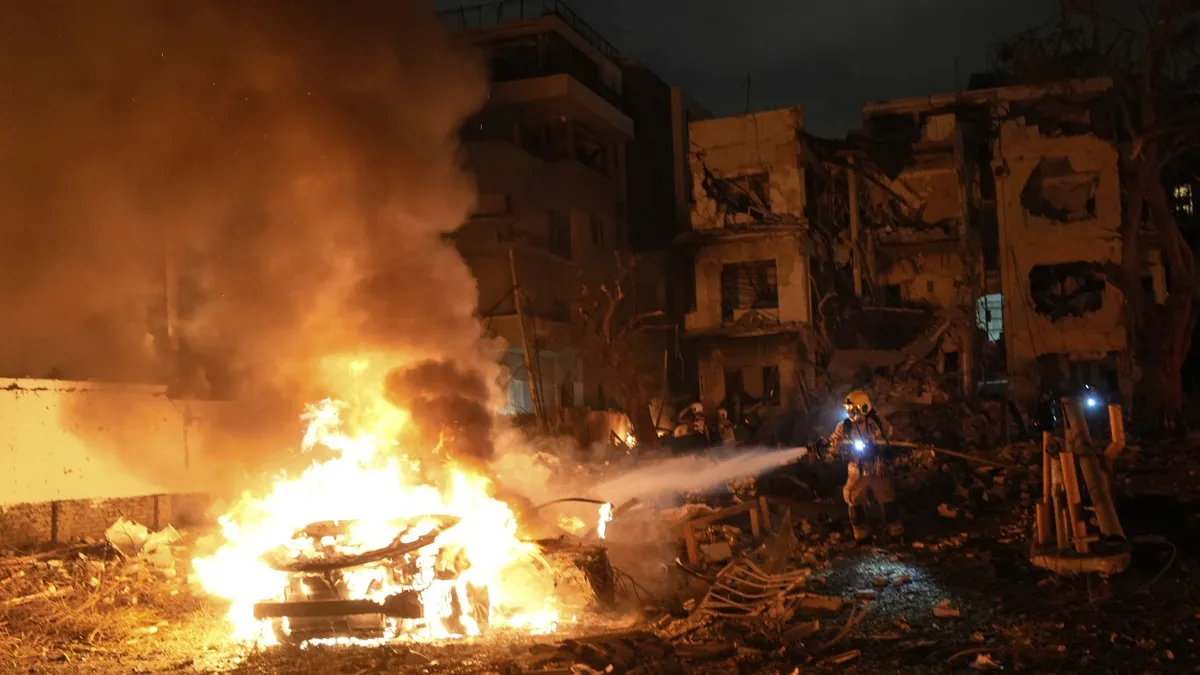
In a concerning escalation, Israel and Iran exchanged deadly strikes early Monday morning, marking the fourth day of intensified conflict between the two nations. This surge in hostilities has raised alarms about the potential for a broader Middle East conflict, prompting international observers to closely monitor the situation.
The Israeli military reported that it conducted precise airstrikes on command centers belonging to Iran's Quds Force, a pivotal military and intelligence entity of the Islamic Revolutionary Guard Corps (IRGC). These overnight strikes reportedly resulted in the deaths of four key officials, including the head of the IRGC's Intelligence Organization. If verified, this would represent a significant escalation in Israel's ongoing campaign against Iran's military capabilities, which it perceives as a direct threat to its national security.
Brig. Gen. Effie Defrin, an Israeli military spokesman, declared that the Air Force had achieved full aerial superiority over Tehran's skies on Monday. He also indicated that Israeli forces had successfully destroyed approximately one-third of Iran's missile launchers, further diminishing Iran's military posture in the region.
The ongoing conflict has had a devastating toll on civilians. According to Iran's Health Ministry, more than 200 individuals have lost their lives since the onset of Israel's offensive, which has disproportionately affected women and children. Additionally, over 1,000 people have sustained injuries as a result of the strikes. On the Israeli side, at least 24 individuals have died from Iran's retaliatory attacks, with nearly 600 more reported injured.
The latest wave of Iranian strikes targeted cities in Israel, including Tel Aviv and Haifa, early Monday morning. Reports indicate that these attacks resulted in at least eight fatalities and nearly 100 injuries, according to statements from the Israeli Prime Minister's Office. Tragically, in Petah Tikvah, near Tel Aviv, an Iranian missile strike on a residential building claimed the lives of four individuals, all in their 70s.
Images shared by Israel's emergency services, Magen David Adom, depicted the harrowing scenes of babies being rescued from the rubble of collapsed buildings, underscoring the human cost of the ongoing conflict.
In a further escalation, one missile struck the U.S. consulate in Tel Aviv, causing minor damage. U.S. Ambassador to Israel, Mike Huckabee, confirmed that no American personnel were injured during the strike, and the consulate would remain closed on Monday.
Despite mounting international pressure for de-escalation, both Israel and Iran have shown little willingness to engage in diplomatic talks. Prime Minister Benjamin Netanyahu emphasized in an interview with Fox News that the focus should not be on a ceasefire but rather on eliminating threats to Israel's survival. He stated, "We are committed to stopping it, and I think we can achieve it."
In response, Iran's Revolutionary Guard has issued a warning that any future strikes against Israel would be characterized by greater force, precision, and destructiveness, indicating that the conflict may escalate further in the coming days.